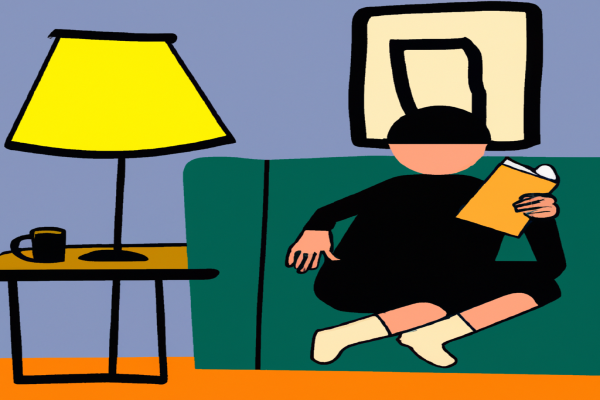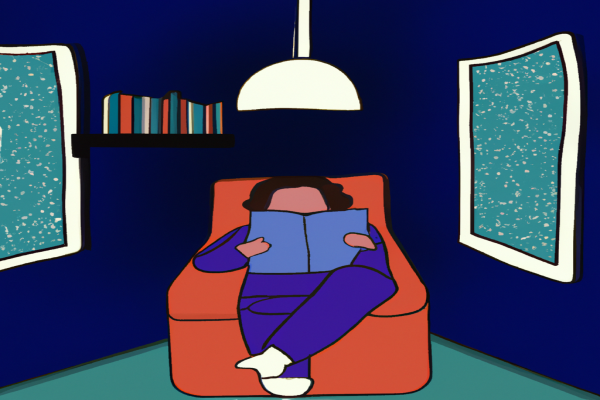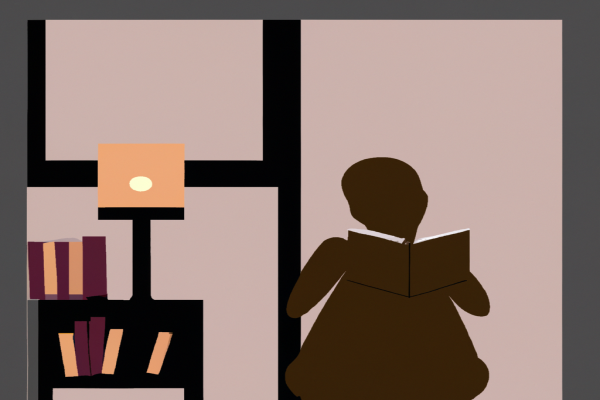Reading Lolita in Tehran: Summary

Reading Lolita in Tehran is a memoir written by Azar Nafisi, an Iranian professor who was forced to leave her teaching job at the University of Tehran after the Islamic Revolution of 1979. The book tells the story of how she and seven female students continued to meet in private, reading and discussing Western literature and defying the oppressive government. Through these clandestine meetings, Azar and her students found solace and strength as they used literature to cope with the harsh realities of their lives under an oppressive regime. Ultimately, the book reveals how literature can be a powerful tool for understanding and challenging oppressive regimes.
Want to know more?
What is Reading Lolita in Tehran about?
Reading Lolita in Tehran is a memoir by Azar Nafisi about her experiences living and teaching literature in Iran during the Islamic revolution. The book follows Nafisi’s journey of self-discovery as she faces the oppression of the government and struggles with personal issues like loneliness and grief. The key themes explored in Reading Lolita in Tehran include identity, freedom, rebellion, and resilience. Identity is explored through Nafisi’s search for her own identity as both an Iranian woman and a professor of Western literature. Freedom is explored through Nafisi’s battle against the oppressive Islamic regime and her attempts to liberate herself from its restrictions. Rebellion is explored through Nafisi’s refusal to accept the narrow definitions of womanhood imposed by the regime and her commitment to teach literature that subverts traditional values. Finally, resilience is explored through Nafisi’s ability to survive despite all odds.
Reading Lolita in Tehran: Book Club Questions
- What is the purpose of Nafisi’s memoir, and how does it fulfill this purpose?
- How does Nafisi's experience reflect the larger experience of Iranian women during the time period of the novel?
- How does Nafisi negotiate her identities as a professor, wife, mother, and Muslim woman in Iran?
- What are some of the challenges that Nafisi and her students face as they discuss Western literature in the setting of Tehran?
- How does Nafisi's use of literature to discuss politics provide hope in a repressive environment?
- How do Nafisi’s views on religion evolve throughout the story?
- What is the significance of the title “Reading Lolita in Tehran”?
- Are there any parallels between Nafisi’s experience and western readers’ understanding of post-revolutionary Iran?
- How has Reading Lolita in Tehran affected your opinion regarding literature, culture, and society in Iran?
- What message does Nafisi ultimately convey about freedom and defiance in oppressive societies?
What to say about Reading Lolita in Tehran
- Reading Lolita in Tehran is a powerful testament to the strength of the human spirit in the face of great adversity.
- Azar Nafisi's writing style is incredibly evocative, allowing readers to be fully immersed in the story.
- The book provides an important insight into the lives of Iranian women living under oppressive regimes.
- The way Nafisi uses literature to explore the themes of freedom and oppression is both thought-provoking and inspiring.
- Despite its heavy subject matter, Reading Lolita in Tehran manages to remain hopeful throughout - an uplifting reminder of the power of literature.
- The use of classic literature as a way to discuss and reflect on current events is a unique approach that makes this book so engaging and memorable.
- Nafisi’s exploration of intersectionality within Iran’s society is particularly compelling and offers a valuable perspective on gender roles in Muslim culture.
- The way the author intertwines her own personal experiences with those of her students makes for an interesting and relatable narrative.
- Reading Lolita in Tehran provides a rare insight into how censorship can affect people’s everyday lives, both intellectually and emotionally.
- It is an incredibly moving story that will stay with readers long after they’ve finished reading it - truly a must-read for anyone interested in modern Iranian history.
Top 5 Quotes from Reading Lolita in Tehran
- "The books that we read in our childhood shape the adult that we become."
- "I had come to think of freedom as an infinite series of choices, and one could make the right choice only if one were allowed to make any choice at all."
- "Truth is so much stranger than fiction, and remembering requires a leap of faith."
- "It was a joyous moment when I realized that books, not people, would be my friends in life."
- "No matter how hard they try, there is no way they can stop me from loving books."
Adaptations of Reading Lolita in Tehran
There are currently no known adaptations of Reading Lolita in Tehran. However, there have been plans to create a feature film adaptation.
Other books by Azar Nafisi
- The Republic of Imagination: America in Three Books
- Things I've Been Silent About: Memories
- The Last Gift from Tehran: A True Story of Love and Loss in Iran
- Forbidden Love: A Novel
- The Accidental Author: From Philosophy Professor to Best-Selling Memoirist
Did you know?
The novel Reading Lolita in Tehran was a national bestseller in the United States and has been translated into 32 languages.




